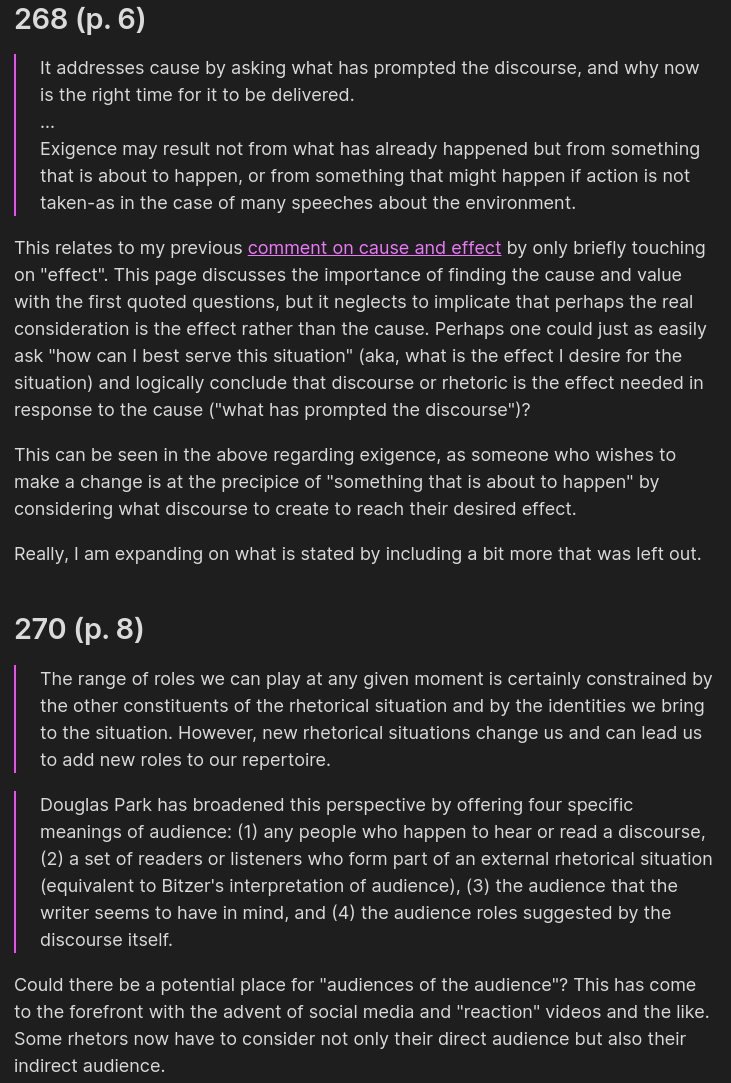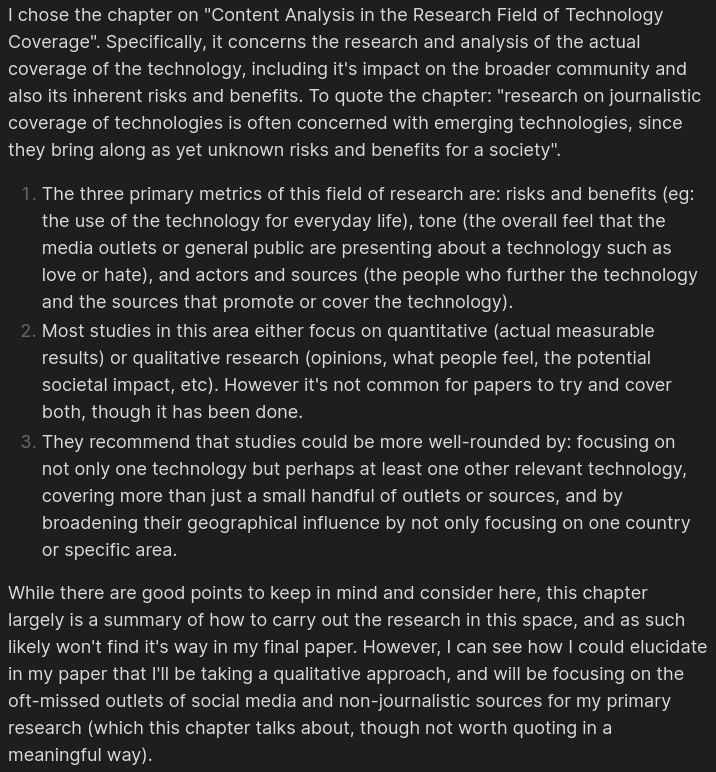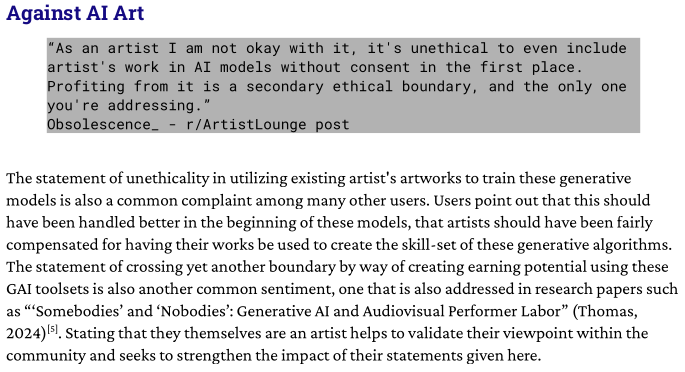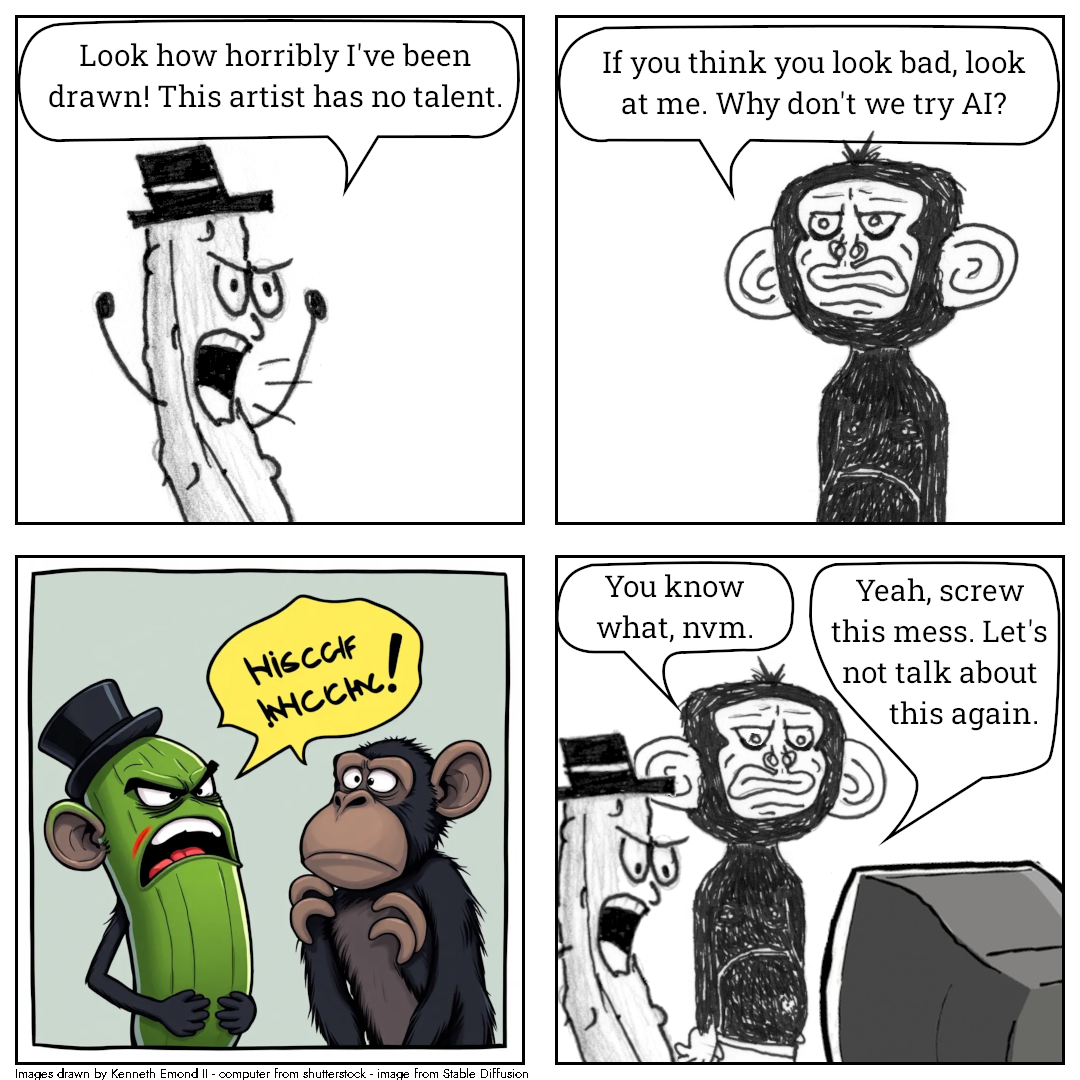Spring 2025 ENC1102 ePortfolio
Hello! This is my ePortfolio built for my Spring 2025 ENC1102 English Composition 2 writing class. Here you will be able to peruse the learning outcomes along with two example assignments and coursework for each outcome, to showcase how, as students, we managed to navigate these outcome requirements. Provided for your convenience is a small Table of Contents relating to each Learning Outcome for the class.
Table of Contents
- Generating Inquiry
- Information Literacy
- Research Genre Production
- Contributing Knowledge
- Revision
- Multiple Ways of Writing
Generating Inquiry
The main concept here is the ability to explore existing inquiry as well as learn to develop our own form of inquiry, especially as it relates to writing, language, literacy, and rhetoric. Inquiry in this context refers to our ability to deep-dive into topics, come up with questions, and explore extra meaning and lines of reasoning to increase our understanding of the rhetoric being studied.
A good example of this “line of inquiry” can be seen in an excerpt from one of my literary notes taken during my reading of “Rhetorical Situations and Their Constituents” by Keith Grant-Davie (Spring 1997, Rhetoric Review, Vol. 15 No. 2), as shown below:

We can see that, as I interface with the text, I am asking further questions posed by the author, and ones which I myself am postulating in regards to their efficacy and possible usefulness within my own research.
Another showcase for “Generating Inquiry” can be seen in one half of my Writing Project 1 submission for the Research Proposal of my eventual Project 2, which was where actual research was conducted. In this portion of the assignment, one can observe not only the lines of reasoning for the research, but also how multiple lines of questioning perhaps could have come about through interfacing with other academic sources:
Writing Project 1 - Research Proposal
Information Literacy
This not only encompasses the domain of “understanding textual meaning”, but also expands on that text’s usefulness as either primary or secondary source for research. Knowing how a source is useful and how it fits within the scope of research is important for credibility as well as analysis.
The process of interfacing with academic sources and seeing how it might fit within my own personal research topic is crucial for gaining expanded literacy in any given rhetoric. As such, I’ve attached the other portion of my Writing Project 1 submission here in PDF form as a showcase of this process. This portion of the project was an “Annotated Bibliography”, meaning it is a bibliography with paragraphs for each entry consisting of a summary and a paragraph describing its usefulness in the later research project. Here you can see how I’ve taken and condensed information from each source into not only a digestible format, but also reasoning how it might be used within my later project:
Writing Project 1 - Annotated Bibliography
One important facet of this “Informational Literacy” is the ability to check credibility, relevance, and ethics for a given source. As my second example for this section, shown here is another submission for an analysis of a piece of assigned reading which focuses on teaching us how to analyze and properly go about utilizing sources for our research; which is considerably important for the aforementioned qualities of Informational Literacy:

Research Genre Production
This section is a little tricky in its definition, as here “Genre” means essentially a mode of communication. Here, we are demonstrating the ability to not only read multiple different forms of research, but also our ability to produce research within various “genres” which matter to different communities.
Because of the similarities between this course outcome and the later “Multiple Ways of Writing” outcome, here I will be showcasing the reasoning behind the eventual creation of the differing genres, which will be shown in the last outcome section under “Multiple Ways of Writing”.
First, again, the Writing Project 1 Research Proposal assignment is a fine example of the reasoning and rational behind the eventual Project 2 (seen in the last outcome). I will link it here again for convenience:
Writing Project 1 - Research Proposal
Our class primarily created only one major research paper, that being Project 2, but one could argue that, the eventual Project 3 wherein we took Project 2 and re-contextualized it into a different genre, is a form of new research into a new genre. Hence, my reasoning and rationale for creating Project 3 is shown here as my second example of this learning outcome:

Contributing Knowledge
This outcome focuses on our ability to draw conclusions from analysis and interpretation of primary sources and then place that in conversation with other sources such as secondary research or academic papers.
Again, we only had one main research project where we interfaced with primary research material (that being online communities). As such, I will showcase an excerpt from Project 2 where I directly correlate some primary research results with existing secondary sources (the first example), and an excerpt from my literary notes of one of the secondary sources showcasing how I predict its usefulness to the overall project (example two):


The above literacy notes were taken from “Being Human in the Age of Generative AI: Young People’s Ethical Concerns about Writing and Living with Machines” by Jennifer M. Higgs and Amy Stornaiuolo (2024, Reading Research Quarterly Vol. 59 No. 4, pp. 632-650)
Revision
A simple outcome which speaks to our ability to revise and redraft material with appropriate feedback.
The simplest way to showcase this learning outcome is to show a before and after version of Project 2, as it was the main project which required the most back-and-forth drafting. Sadly, the differences between my draft versions were relatively minimal, and so I will only be able to showcase one such obvious occurrence of revision (although it is a relatively minor difference):


Multiple Ways of Writing
As stated before, this section is very similar to the “Research Genre Production” outcome, but the difference I will be keying on here is the act of producing those different projects. There were two projects which were vastly different from each other, that of Project 2 and Project 3.
Project 2 was a full-on research paper, created from our own research questions and our own primary research. Attached below is my final submission for Project 2, titled “Discourse Analysis of Online Community” in the coursework (prepare yourself, it is over 12 pages long and is written as an academic research paper):
The task for Project 3 was to take the overarching ideas and results from the research found in Project 2 and turn it into something completely different. As seen previously, I chose to create a small, 4-panel web comic for my Project 3:

Le Fin
And there you have it! All the learning outcomes for the Spring 2025 ENC1102 English Composition 2 course at UCF. I hope you enjoyed the journey!